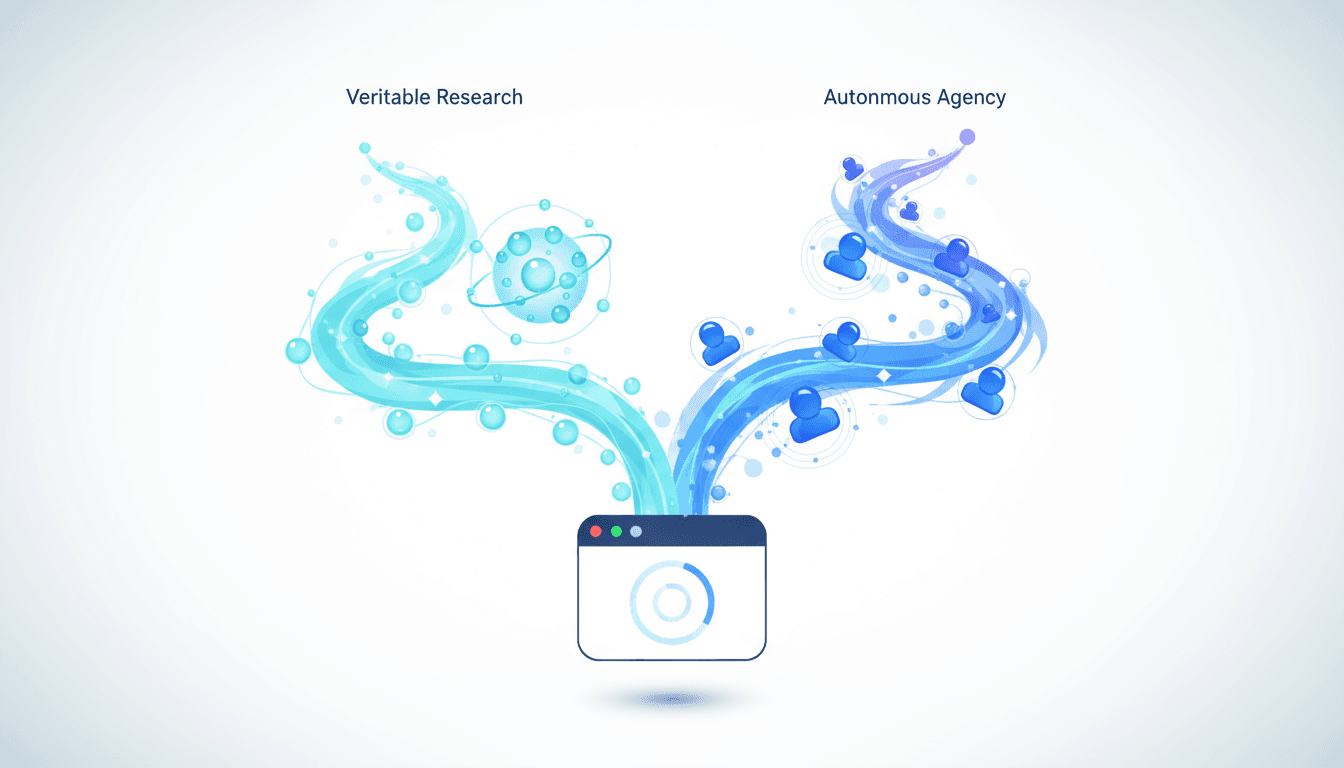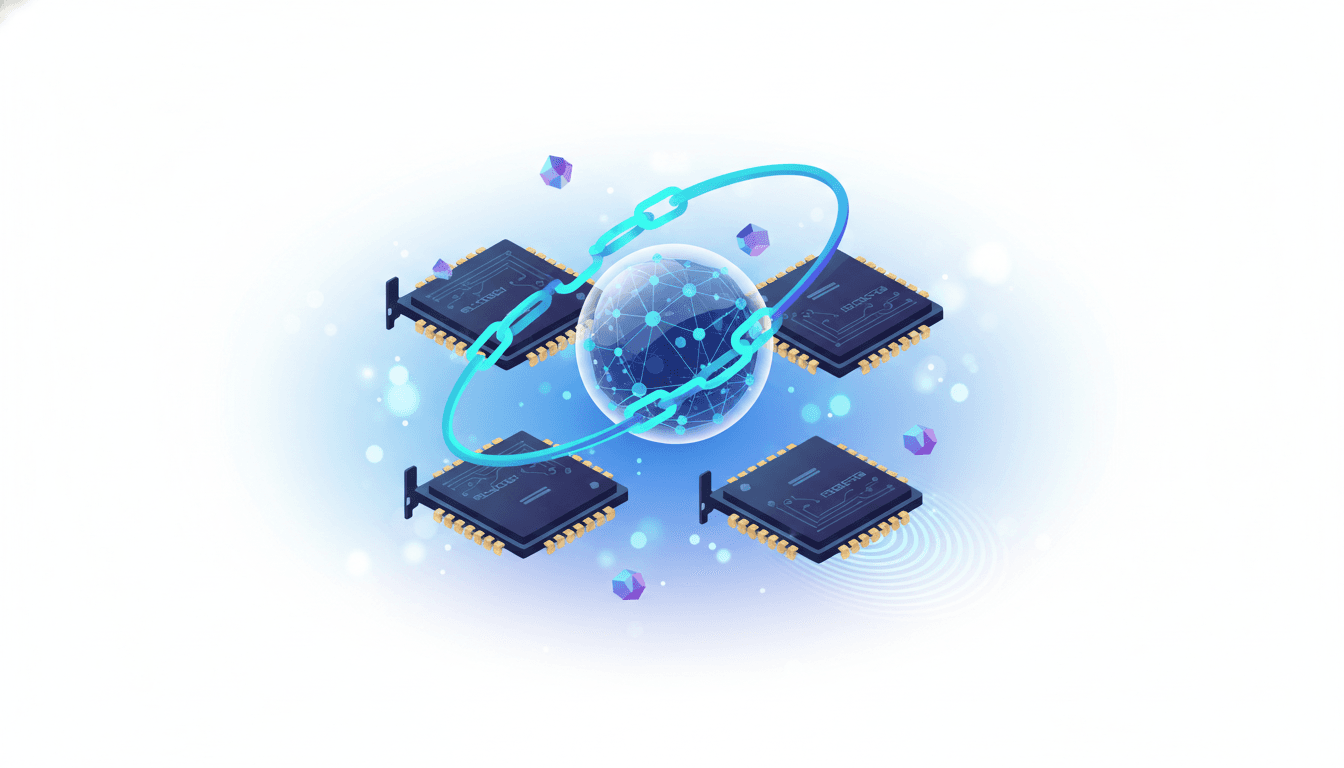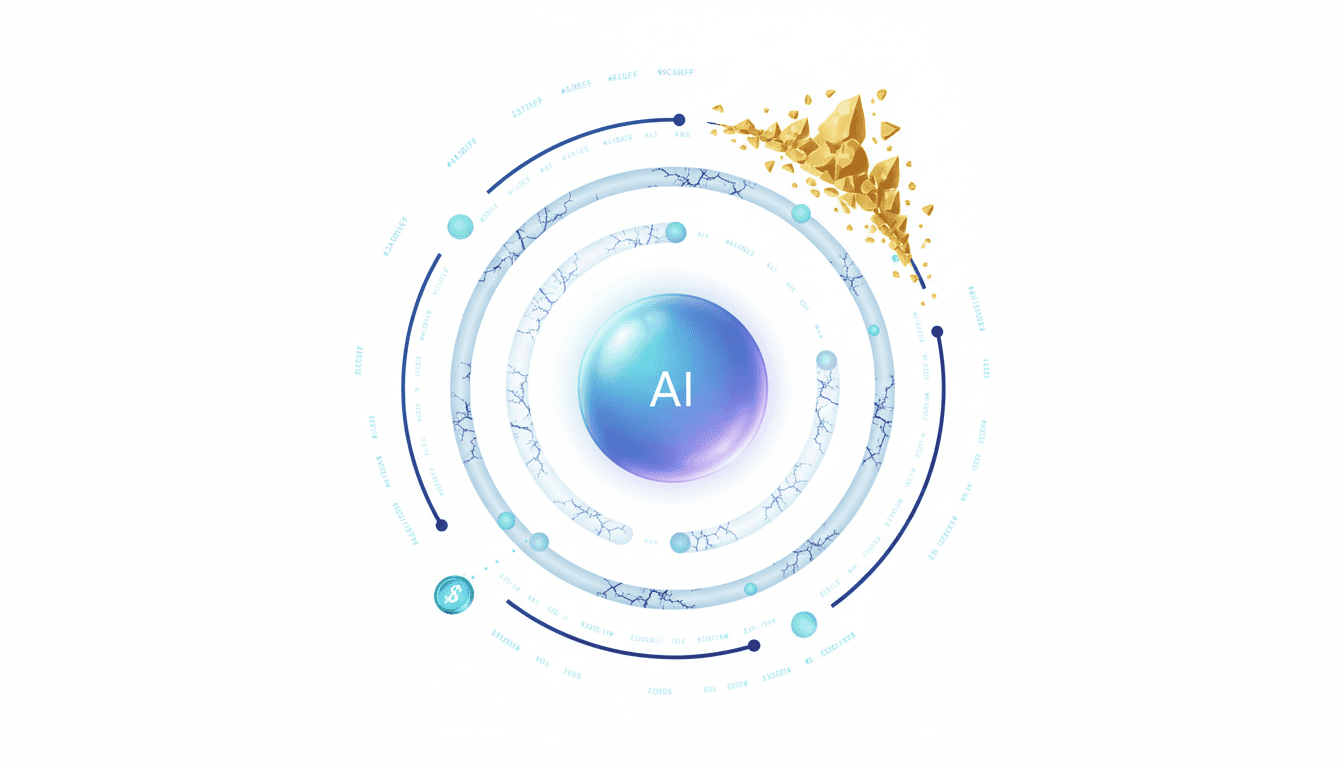ChatGPT Atlas vs Perplexity Comet: AI Browser Futures

⚡ Quick Take
The web browser is evolving from a simple window to the internet into an active intelligence layer, with ChatGPT Atlas and Perplexity Comet emerging as the templates for two divergent futures. As the market races to define the "AI-native browser," the primary battle isn't over features, but philosophy: should your browser be a verifiable research assistant or an autonomous agent?
Summary
The AI browser space is heating up, coalescing around two primary contenders: Perplexity Comet, the citations-first research engine, and ChatGPT Atlas, the automation-focused co-pilot. Current comparisons frame this as a choice between accuracy and productivity, but this misses the deeper architectural and governance questions that will define the enterprise adoption of AI agents.
What happened
A flurry of reviews and benchmarks are comparing Comet and Atlas, establishing a clear narrative. Comet is consistently praised for its research-oriented design, transparency, and citation quality. Atlas is positioned as an immersive, automation-driven extension of the ChatGPT ecosystem, designed to act on the user's behalf across the web.
Why it matters now
Ever wonder how the tools you use every day could reshape entire industries? This browser showdown is a microcosm of the larger debate around AI deployment. The decisions users and organizations make today - choosing between a tool for thought and a tool for action - will set the precedent for how web-based AI agents are governed, trusted, and integrated into critical workflows.
Who is most affected
Knowledge workers, researchers, and students are the immediate audience, but the most significant impact will be on enterprise IT, security, and compliance teams. They must now evaluate these new endpoints not just for productivity, but for data governance, security vulnerabilities, and total cost of ownership.
The under-reported angle
While the web is saturated with feature-level comparisons, there is a critical void in analysis of enterprise readiness. No one is publishing independent, reproducible benchmarks on resource consumption (CPU/RAM), security models (sandboxing, prompt injection resistance), or the availability of crucial admin controls like SSO and audit logs. From what I've seen in similar tech rollouts, that's where the real headaches start.
🧠 Deep Dive
Have you ever paused to think about the browser not just as a gateway, but as the beating heart of your online world? The browser is the new battleground for AI dominance. With the launch of ChatGPT Atlas and the widespread availability of Perplexity Comet, the concept of a browser is being fundamentally reframed from a passive content viewer into an active intelligence-processing engine. This showdown represents a fork in the road for how humans will interact with AI on the web, forcing a choice between two powerful but philosophically distinct approaches. It's like weighing two paths in a forest - one lit by verifiable signposts, the other buzzing with self-driving potential.
On one side stands Perplexity Comet, designed as a "researcher's toolkit." Its entire premise is built on accuracy, transparency, and verifiability. Competitor analysis and user feedback consistently highlight its "citations-first" methodology, which helps users trust its outputs by tracing them back to the source. This positions Comet as the go-to tool for academics, analysts, and anyone whose workflow depends on the integrity of information. It's not just a browser; it's an answer engine with guardrails, prioritizing correctness over speculative automation - and honestly, in a world full of misinformation, that feels like a breath of fresh air.
On the other side is ChatGPT Atlas, envisioned as an agentive "co-pilot" for the web. Extending OpenAI's ecosystem, Atlas prioritizes action and automation. Its goal is to become an agent that can execute multi-step tasks, operate across tabs, and deeply integrate with the user's digital life. This approach moves beyond simple Q&A to browser-level task completion, appealing to power users focused on productivity and workflow optimization. The browser here is not just a source of information but a playground for AI agents to perform work, though that playground comes with its own set of risks if not fenced in properly.
But here's the thing: while the market obsesses over these surface-level differences, weighing accuracy against speed or something like that, the most critical questions remain unanswered - plenty of them, really. The existing comparisons overlook the infrastructure and governance realities that will determine enterprise adoption. Where are the independent benchmarks on latency, accuracy across different domains, and, critically, the CPU and memory footprint of these new tools? A browser that constantly consumes high resources is a non-starter for large-scale corporate deployment, no question. Furthermore, the security implications of an agentive browser like Atlas, with its potential for a wider attack surface and vulnerability to prompt injection, demand a far deeper security audit than is currently available. I've noticed how these gaps often trip up promising tech, turning excitement into endless compliance debates.
Ultimately, the choice between Comet and Atlas is a strategic one that extends beyond personal preference. It's a bet on what the future of work looks like - human-verified insights amplified by AI, or autonomous AI agents governed by humans? The architectural choices being made today - local versus cloud processing, data retention policies, and extension compatibility - will dictate the cost, security, and scalability of intelligence itself. The winner won't just be the browser with the best features, but the one that builds the most robust ecosystem of trust and control, leaving room for what comes next in this fast-moving space.
📊 Stakeholders & Impact
Stakeholder / Aspect | Impact | Insight |
|---|---|---|
Knowledge Workers & Researchers | High | The choice between Comet and Atlas directly maps to workflow needs. Comet accelerates verifiable research and fact-finding, while Atlas promises to automate repetitive digital tasks, creating a clear productivity trade-off - one that might feel like night and day depending on your daily grind. |
Enterprise IT & Security Teams | Significant | These new browsers represent a new class of endpoint risk. The lack of clear data on security models, resource usage, compliance controls (SSO, audit logs), and data handling policies is a major adoption blocker, forcing teams to tread carefully before rolling anything out. |
AI/LLM Providers (OpenAI, Perplexity) | High | This is a war for the primary user interface of AI. Controlling the browser means shaping user habits, collecting interaction data, and creating a powerful lock-in for their respective model ecosystems - a smart move if they play it right. |
Traditional Browser Vendors (Google, Microsoft) | Medium | While Chrome and Edge have integrated AI features (Copilot), they are not yet AI-native. The success of Comet and Atlas will force them to decide whether to double down on integration or re-architect their browsers from the ground up, watching from the sidelines for now. |
✍️ About the analysis
This article is an independent i10x analysis based on a meta-review of competitive benchmarks, product feature sets, and identified gaps in public reporting. It is written for technology leaders, enterprise developers, and product managers tasked with evaluating and deploying next-generation AI tools - folks like you, navigating these decisions day in and day out.
🔭 i10x Perspective
What if the humble browser were suddenly the key to unlocking AI's full potential in your work? The browser war isn't about tabs or search bars anymore; it's about defining the operating system for web-based intelligence. The Comet vs. Atlas rivalry signals a market shift from monolithic AI models to the distributed endpoints where they perform work.
The ultimate winner will not be determined by feature parity, but by who can solve the profound, unresolved tension between granting AI agents the autonomy to act and an enterprise's non-negotiable need for security, governance, and control. Watch this space closely, as the browser is rapidly becoming the most important piece of AI infrastructure you use - and it's evolving faster than we might expect.
Related News

OpenAI Nvidia GPU Deal: Strategic Implications
Explore the rumored OpenAI-Nvidia multi-billion GPU procurement deal, focusing on Blackwell chips and CUDA lock-in. Analyze risks, stakeholder impacts, and why it shapes the AI race. Discover expert insights on compute dominance.

Perplexity AI $10 to $1M Plan: Hidden Risks
Explore Perplexity AI's viral strategy to turn $10 into $1 million and uncover the critical gaps in AI's financial advice. Learn why LLMs fall short in YMYL domains like finance, ignoring risks and probabilities. Discover the implications for investors and AI developers.

OpenAI Accuses xAI of Spoliation in Lawsuit: Key Implications
OpenAI's motion against xAI for evidence destruction highlights critical data governance issues in AI. Explore the legal risks, sanctions, and lessons for startups on litigation readiness and record-keeping.